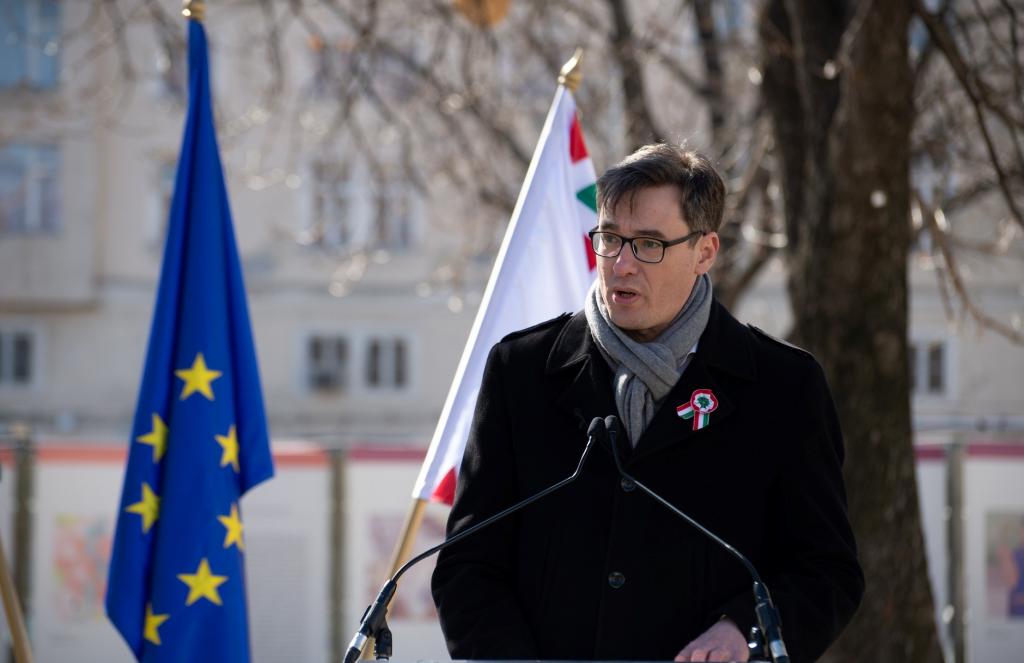Thessaloniki gets ready for its metro launch in November
The underground rapid transit lines have been under construction for almost two decades due to various project delays
 TheMayor.EU logo
TheMayor.EU logo 
According to Mayor Karácsony, this is not the first time the government has acted against public transport , Source: Gergely Karácsony on Facebook
The country's government instituted a fuel price cap last year
Back in November 2021, the Hungarian government instituted a price cap on fuel, limiting sales of gasoline to 1.28 euros (480 Hungarian forints) per litre to limit the damage of the energy crisis. However, with the outbreak of the war in Ukraine, the government has decided to extend the cap and cushion consumers.
However, several key modes of transportation were not addressed in the bill, as Budapest Mayor Gergely Karácsony pointed out on social media last week. In fact, he went a step further by explaining that Victor Orban’s government is targeting public transport deliberately as a way to punish the capital.
This prompted Mayor Karácsony to write an official letter petitioning the government to extend the price caps to public transport, otherwise the budget of local governments would take a serious hit.
Hungary has been using price caps this year to mitigate the fallout from the European energy crisis. In early February, they instituted the first price cap and it was aimed at essential food items. Orban's government extended the caps already in place on the price of energy, fuel and mortgage borrowing.
The fuel price cap, in particular, covers Hungarian vehicles under 7.5 tons and foreign vehicles under 3.5 tons. The distinction between foreign and domestic cars, according to Gergely Gulyás, Hungarian Minister of the Prime Minister’s Office, was made to discourage fuel tourism.
However, the bill does little to help gas stations and logistics companies, some of which are forced to provide fuel at a loss. Notably, the government then moved to cut the value-added tax for fuel sales in an attempt to calm the situation.
The issue of public transport in Budapest has caused quite a bit of controversy in the past six months, as Mayor Gergely Karácsony pointed out in November. Back then, according to him, the government was to blame for withholding certain funds.
The move provoked fears in the city’s administration that, due to the loss of ticket sales during the lockdown period, public transport could face a shutdown. Both then and now, Mayor Karácsony claimed that the government was punishing the citizens of Budapest as a political move.
Currently, the city’s public transport does not fit the bill to qualify for the cheaper fuel. Consequently, the vehicle fleet needs to refuel at market prices, which puts additional strain on the municipal budget, whereas the central government would enjoy a 27% increase in tax revenue. That is why the mayor petitioned the government to extend the cap to cover public buses.
Karácsony continued: “While everyone would have an interest in as many people using community transport as possible, the government continues to punish the sector.”

The underground rapid transit lines have been under construction for almost two decades due to various project delays

Now you can get your wine in Talence by paying directly in Bitcoin

That’s because the state has to spend money on updating the railway infrastructure rather than subsidizing the cost of the popular pass

Rethinking renewable energy sources for the urban landscape

The examples, compiled by Beyond Fossil Fuels, can inform and inspire communities and entrepreneurs that still feel trepidation at the prospect of energy transition

Now you can get your wine in Talence by paying directly in Bitcoin

The 10th European Conference on Sustainable Cities and Towns (ESCT) sets the stage for stronger cooperation between the EU, national and local level to fast track Europe's transition to climate neutrality.

At least, that’s the promise made by the mayor of Paris, Anne Hidalgo

The underground rapid transit lines have been under construction for almost two decades due to various project delays

At least, that’s the promise made by the mayor of Paris, Anne Hidalgo

Hostal de Pinós is located in the geographical centre of the autonomous region

Despite its church-y name, the district has long been known as the hangout spot for the artsy crowds

Urban dwellers across the EU are having a say in making their surroundings friendlier to people and the environment.

Forests in the EU can help green the European construction industry and bolster a continent-wide push for architectural improvements.

Apply by 10 November and do your part for the transformation of European public spaces

An interview with the Mayor of a Polish city that seeks to reinvent itself

An interview with the newly elected ICLEI President and Mayor of Malmö

A conversation with the Mayor of Lisbon about the spirit and dimensions of innovation present in the Portuguese capital














